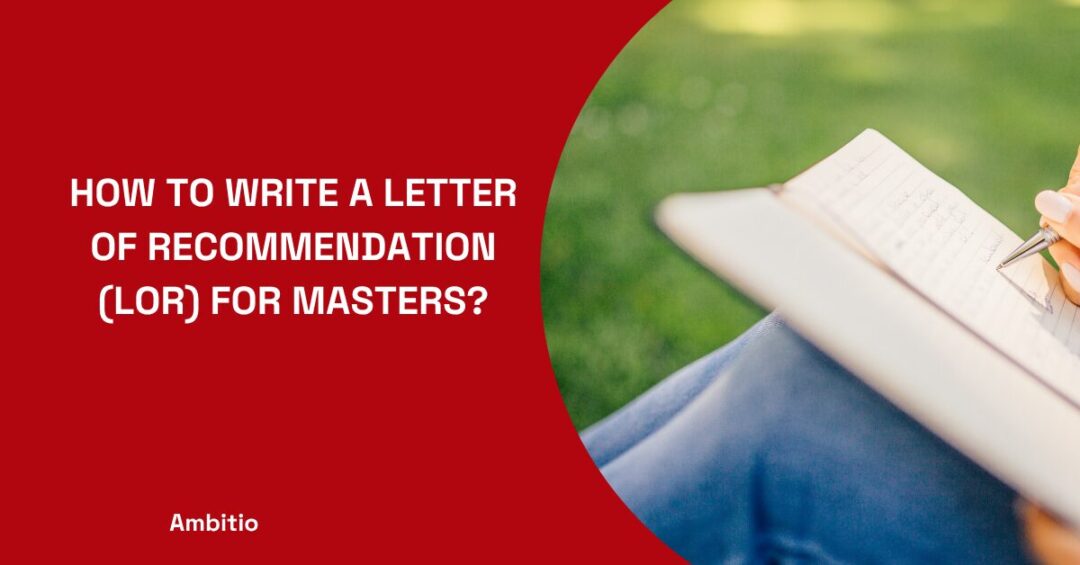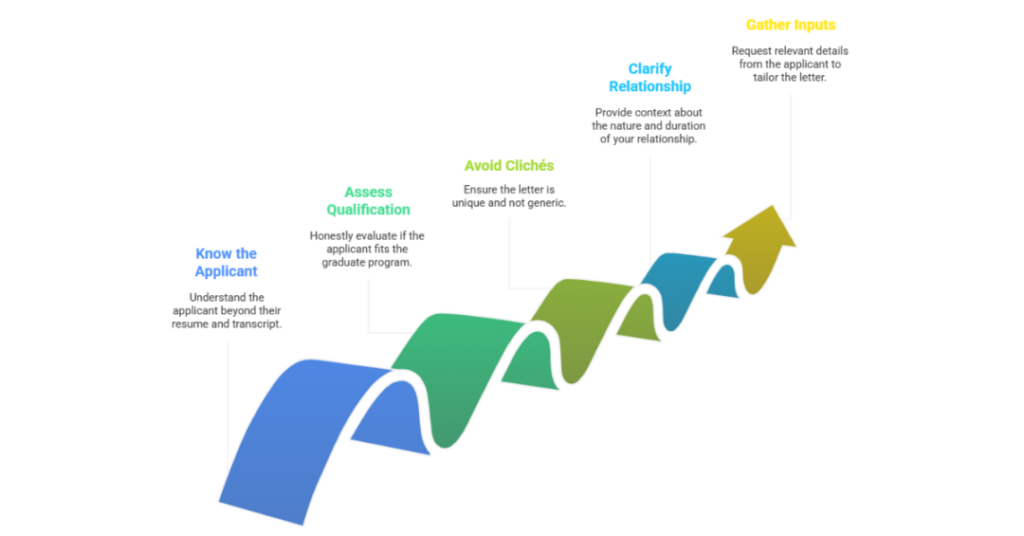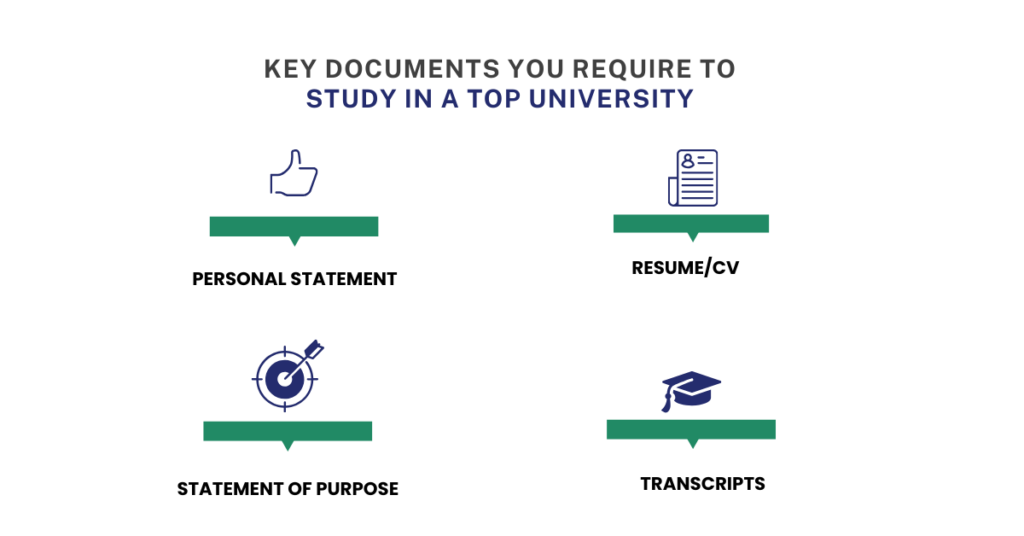1 July 2025
7 minutes read
How To Write A Letter Of Recommendation (LOR) For Masters In 2025?

Key Takeaways
- Letter of recommendation for masters must be personal and program-specific to make real impact
- Professors or employers should ask the right questions before agreeing to write an LOR
- Strong LORs highlight achievements with examples, not vague praise or job duties
“Your resume says a lot—but a letter of recommendation? That’s someone credible saying you’re not just good on paper.” Yet every year, thousands of applicants struggle to get one that actually works. Why? Because their professor or employer ends up writing a bland, recycled draft with zero personal insight and all the wrong emphasis. The truth? Most recommenders don’t know how to write a letter of recommendation that hits the mark for graduate school—and the applicant is too scared to guide them.
Here’s the fix: take control of your LOR without writing it yourself. Help your recommender with a solid structure, give them context (your resume, achievements, deadlines), and make sure your personal qualities don’t get buried under vague praise. You don’t need three letters of recommendation that sound the same. You need one great story, told three different ways—each reinforcing your qualifications, not repeating your transcript.
5 Things You Should Ask Yourself Before You Write A Letter Of Recommendation (LOR)
Let’s suppose you’re a professor, employer, or mentor, if you’ve ever agreed to write a letter of recommendation without even asking the applicant what program they’re applying to, congratulations—you’re part of the reason some students get rejected from graduate school. A strong LOR doesn’t just say what someone did; it tells why it matters.

The admission committee doesn’t want a generic recommendation letter—they want proof of credibility, accomplishment, and personal qualities that aren’t copied from a resume or transcript. So, before you hit “New Draft,” ask yourself these five brutally honest, mindset-shifting questions:
1. Do I know enough about the applicant beyond their resume and transcript?
If all you’ve seen is their resume or transcript, you’re not ready to write a LOR. The admission committee reads thousands of recommendation letters, and if yours reads like a third-party summary of public data, it’s a straight pass. Get into their story. Understand what achievement or analytical skill made them stand out. You need to showcase more than GPA—you need to reflect their personal qualities through real, lived moments.
2. Can I honestly vouch for their qualification for a graduate school program?
Graduate schools aren’t looking for saints. They’re looking for people who fit the masters program—academically or professionally. Ask yourself: have I seen this applicant perform in a way that reflects what the program demands? Whether you’re an employer highlighting leadership, or a professor emphasising research skills, your recommendation letter needs to prove they’re ready for what’s next, not just that they were decent in the past.
3. Am I writing the same LOR I’ve written for 10 others?
If your draft includes lines like “She was a pleasure to work with” or “He was always punctual,” please stop. These recommendation letters get filtered out faster than spam mail. You’re one of three letters of recommendation they’ll submit—make yours count. Avoid clichés. Instead, emphasise something unique: a risk they took, a problem they solved, or a time they exceeded expectations under a tight deadline.
4. Have I clarified the context of our relationship—academic or professional?
The credibility of a LOR isn’t just based on how senior the recommender is; it’s based on how closely they’ve worked with the applicant. Whether you supervised their research as a professor, or mentored them as an employer, be specific. The more detail you provide about the nature, duration, and setting of your relationship, the more trust the admission committee will place in your perspective.
5. Have I asked the applicant for the right inputs before I write?
You’re not expected to remember every project or accomplishment—ask for a short brief. Request their resume, program details, even a few bullet points of what they want highlighted. This doesn’t make the letter less authentic; it makes it more accurate. A good LOR isn’t just your opinion—it’s your opinion backed by relevant, tailored input that fits the applicant’s admission goals.
What To Include In A Letter Of Recommendation For Masters?
If you really want your LOR to stand out from the crowd, it needs to do more than just say the applicant is “motivated” or “punctual.” A well-written LOR for a master’s program should feel intentional, strategic, and brutally relevant to the specific program being applied to.
Whether you’re trying to write a compelling recommendation for grad school or simply want to understand what makes one effective, here’s what you absolutely need to include.
1. A Clear Introduction That Defines the Relationship
Every letter of recommendation for masters should open by stating how the recommender knows the applicant, and in what context? Academic or professional? If you’re a professor, mention the courses you taught and how long you’ve interacted with them. If you’re providing professional references, detail the applicant’s work history and performance. Admissions committees don’t just care about what you say; they care about how well you know the applicant.
2. Specific Mention of the Master’s or Graduate Program
Generic praise won’t work. Tailor your LOR to the specific program the student is applying to. Mention why the applicant is a fit for that grad school program, and how their goals align with what the master’s offers. This shows that the letter wasn’t reused or rewritten from a template, and it matches the tone and expectation of a proper graduate school letter of recommendation.
3. Highlight Skills and Achievements, Not Job Descriptions
This is where many LORs for masters programs fall flat. Instead of describing tasks, focus on the skills and achievements that actually matter—like analytical thinking, leadership under pressure, or the ability to work independently. Use real examples to highlight specific instances where the applicant stood out. That’s the purpose of a LOR—to give a third-party validation of the applicant’s qualifications that can’t be pulled from a transcript.
4. Include Key Components of the Standard Format
A lor format for masters isn’t complicated, but skipping essential elements can weaken the letter. A strong LOR should include:
- A brief introduction
- The nature of the relationship
- 1–2 paragraphs with specific examples of strengths
- A conclusion that confidently endorses the applicant
That’s the standard format and what most grad schools expect. If you’re unsure, check the exact format of a LOR required by the university before you submit a letter of recommendation.
5. Details That Align With the Application Process
The LOR is part of your application, and timing is everything. Ensure your recommender knows the deadline, the graduate program name, and how to submit your application—usually through a recommendation online portal. Most schools require 2–3 LORs, and each should focus on different qualities of the applicant. That’s why it helps when applicants reach out to professors or employers in advance and provide them with all necessary details to write this letter of recommendation right.
What Else Do You Need To Study Master’s In Abroad?
Well you know, I know, a hippopotamus knows—a letter of recommendation isn’t enough. Not even close. If you think submitting a well-written LOR or two will magically unlock your dream university, let’s just say the admission committee is going to politely disagree and move your application to the “maybe next year” pile.

To study master’s abroad, you need to build a full-proof, third-party verified application with everything from test scores and essays to identity proofs and academic transcripts. So, before you hit submit, here’s a no-nonsense, brutally clear table of all the exams you need to master, and the documents you absolutely can’t afford to miss.
| Category | Requirement | Why It Matters |
|---|---|---|
| Standardized Tests | GRE / GMAT | Required by most top universities; proves analytical and reasoning ability. |
| IELTS / TOEFL / Duolingo | Mandatory if English isn’t your first language; assesses communication skills. | |
| Subject-specific tests (if any) | Some programs may ask for additional tests (like LSAT, MCAT, etc.). | |
| Academic Docs | Transcripts | A detailed record of your academic history—accuracy and official seals matter. |
| Degree Certificates | Proof that you’ve completed previous academic qualifications. | |
| Resume / CV | Not optional. Gives context to your achievements and academic or professional experience. | |
| Letters & Statements | 2-3 Letters of Recommendation (LORs) | Yes, still important—shows a third-party validation of your skills and achievements. |
| Statement of Purpose (SOP) | Your voice, your story—shows alignment with the graduate program. | |
| Essay / Personal Statement | Some universities ask for additional writing samples. | |
| Identity Docs | Passport (valid for at least 6 months) | No travel without it—duh. |
| Photographs (as per visa requirements) | For application and visa processes. |
Conclusion
The truth is—writing or securing a strong LOR isn’t just another task on your checklist. It’s part of your story. One that the admission committee reads when they’re trying to figure out if you fit—not just on paper, but in mindset, motivation, and maturity.
Because at the end of the day, your SOP might say you’re ready. Your test scores might prove it. But your LOR? That’s someone else betting on you. And that kind of third-party confidence—it sticks.
Most students settle for boring, copy-paste LORs—but yours won’t. At Ambitio, our experts help you craft sharp, personalized letters of recommendation that actually say something—and make decision-makers pay attention. No templates, no fluff—just real impact, written right. Get your letter of recommendation done with Ambitio Elite.
FAQs
What is a letter of recommendation for masters?
A letter of recommendation is a formal document written by a professor, employer, or mentor that supports your application for a master’s program by highlighting your skills, achievements, and potential.
Who should write my letter of recommendation?
Ideally, someone who knows your academic or professional abilities well, such as a professor, research advisor, or employer relevant to your field of study
How many letters of recommendation do I need for a master’s application?
Most programs require 2 to 3 letters, but this can vary depending on the university’s requirements.
What should be included in a strong letter of recommendation?
Specific examples of your skills, achievements, work ethic, academic performance, and suitability for the master’s program.
When should I ask for a letter of recommendation?
At least 4 to 6 weeks before the application deadline to give the recommender enough time to write a thoughtful letter.
Can I provide a template or draft to my recommender?
Yes, it’s helpful to provide a draft or bullet points highlighting your achievements to guide the recommender.

You can study at top universities worldwide!
Get expert tips and tricks to get into top universities with a free expert session.
Book Your Free 30-Minute Session Now! Book a call now




























